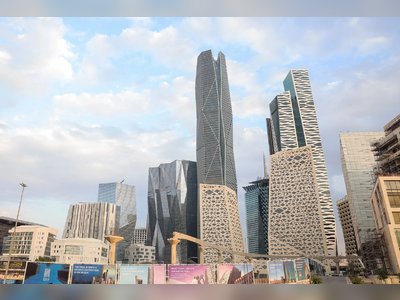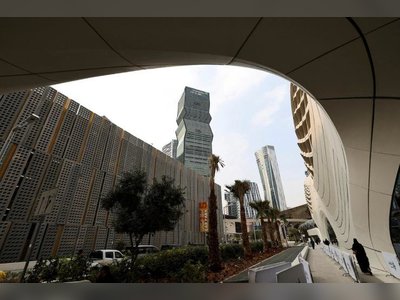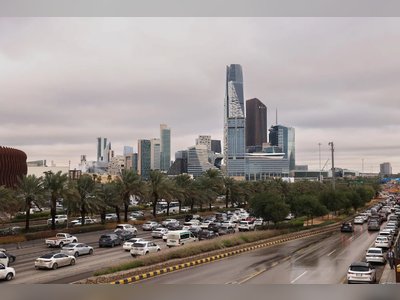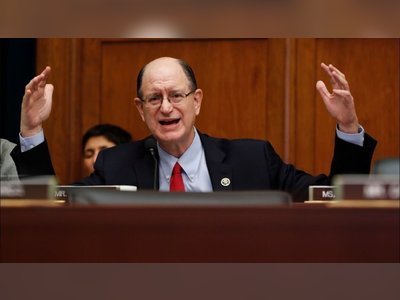
Biden v Trump: a roadmap to the 2024 presidential election
Republican and Democratic voters have to wait nearly a year to decide on their candidates, but the US's 2024 presidential election campaign is already well underway.
So far, the odds are in favour of a head-to-head race between Joe Biden and Donald Trump, the first election since 1892 to pit a former president against a sitting one. So what can we expect, and who might come out on top?
Biden officially launched his reelection bid last month, rallying Americans to join him with a new slogan: "let’s finish the job". Meanwhile, on the other side, polls, fundraising numbers and endorsements all seem to point one way: while he already faces primary challengers as well as serious legal problems, Trump is set to win the Republican nomination.
He was recently indicted by a New York grand jury over alleged hush money payments to adult film actress Stormy Daniels, but according to one recent poll, 68% of Republican primary voters consider the investigations into his conduct "politically motivated" and agree that "we must support him".
The former president is also ahead when it comes to money. The Trump campaign reported a $15.4 million fundraising haul for the first quarter of the year, putting him ahead of the two other declared GOP candidates. "Anti-woke" entrepreneur Vivek Ramaswamy declared $11.4 million, a sum overwhelmingly sourced from his personal wealth; Trump's former UN Ambassador Nikki Haley, meanwhile, initially claimed to have raised a similar figure, but ultimately turned out to have pulled in just $5.1 million.
Crucially, Trump's numbers do not reflect the effect of his recent indictment, or the civil suit that saw him found liable for sexual assault. In the two weeks after the Stormy Daniels indictment, the Trump campaign raised an additional $15.4 million, receiving more than 312,000 donations – 97% of which were less than $200.
Establishment blessing
If money matters, so do endorsements. While support for Trump is far from unanimous, the GOP's increasingly extreme Washington leaders are so far still backing him. Haley has not attracted much in the way of top-tier endorsements, while other possible candidates yet to jump in – former vice president Mike Pence, for one – show little sign of gathering steam.
It remains possible that popular Florida Governor Ron DeSantis could pose a threat to Trump’s nomination. But while he has long been seen as by far Trump's most significant challenger, the chatter about his chances against the former president has died down noticeably in recent months.
Biden’s campaign announcement, meanwhile, has hardly generated a wave of enthusiasm. According to an NBC poll, 70% of all Americans, including 51% of Democrats, think that he should not run for a second term. And yet, there is no sign of any mainstream Democrat stepping forward to challenge him.
There are two other candidates running against him so far: spiritual author Marianne Williamson, who campaigned unsuccessfully in the 2020 contest, and longtime anti-vaccine conspiracy theorist Robert F Kennedy Jr, whose father was murdered while campaigning for president in 1968. But both have been firmly frozen out by the party establishment, and so far, neither appears to pose any meaningful threat to Biden's chances; there is no indication the president will appear alongside them at any TV debates.
Even with no mainstream Democratic challenger on the horizon, Biden's nomination is hardly a sure thing. Forced to compete on the gruelling campaign trail while also holding the presidency, the octogenarian Biden's verbal and physical performance may yet raise further doubts over whether he is fit for the job.
But while combination of consistently discouraging polls, constant Republican allegations of corruption involving the Biden family and doubts about Biden's ability to serve out a full second term leave at least some space for an alternative scenario to play out, there remains no indication of what that would scenario would be.
So assuming that a 2020 rematch is on the cards, who would be in a better position to win the White House?
Class consciousness
Recent polls suggest the rematch would be a tight race, but the road ahead is still long and full of uncertainties. What seems clear, however, is that both candidates will revert to Bill Clinton’s 1992 campaign slogan: “It’s the economy, stupid”. And while Biden is currently insisting that his economic plan is working, economic gut feelings could still work in the GOP’s favour.
While a lot can and will happen over the next 17 months, the economic outlook is far from encouraging, as the risk of recession remains high. Record-high inflation has been punishing Americans for the best part of two years: according to a recent survey by McLaughlin & associates, 65% of voters believe the US is heading in the wrong direction, and 79% say their household finances have been adversely affected by the economy.
Moreover, an unprecedented debt default – with potentially devastating consequences for the American economy - remains a possibility, with Biden seemingly unwilling to compromise with Republican demands in exchange for a vote to lift the debt ceiling.
The GOP's opportunity here stems from the fact that the party's base has substantially changed, rebalancing away from wealthy "country club" suburbanites and instead relying on a culturally conservative and economically populist middle- and working-class Americans – that is, people hit hardest by the economy's problems.
By way of evidence, nine of the ten wealthiest congressional districts are now represented by Democrats, while Republicans represent 64% of the congressional districts whose median incomes sit below the national median.
Yet even with an advantage on the economic front, in order to secure a majority, Trump would have to balance the claims of his conservative base without alienating independent voters. This would demand a change in style that the former president may not be willing to make, if he's even capable of doing so.
Swing states
Meanwhile, America's electoral geography has changed over the past decade, with Democrats making advances in urban centres and Republicans cementing their advantage in rural areas.
The crucial Electoral College battlegrounds have also changed. Coming off the last two elections, former swing states Ohio, Iowa and even Florida are now firmly in the red column. Eyes are now turned to the the onetime Democratic “blue wall” of Pennsylvania, Michigan and Wisconsin, three states that went for Trump in 2016 and Biden in 2020 – both times by extremely narrow margins.
And regardless of who the candidates are, the economic and geographical realignment of the two party's electoral coalitions means the 2024 election will be decided by suburban voters in those same three states, along with the rapidly liberalising battlegrounds of Arizona and Georgia – two states that locked up Biden's victory in 2020.
Comments












